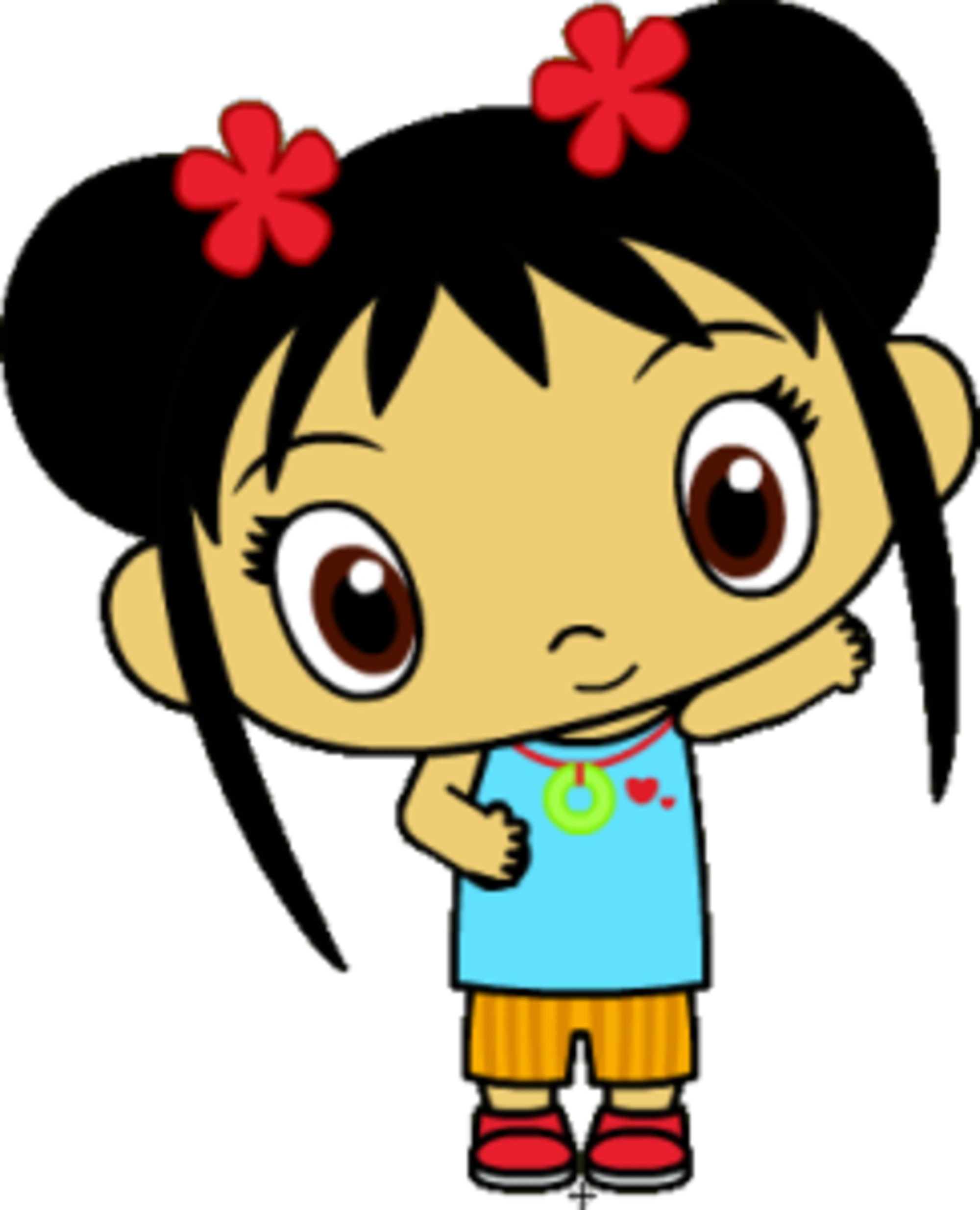
Image from nihaokailan.wikia.com
I grew up watching little cartoon songs in Chinese from CDs and VHS tapes my parents got from China. Characters were all drawn in the same style, and it wasn’t until I started watching American shows when I grew older did I realize a difference. Now, granted, that jump was just to Nick Jr. shows like Dora, Kai-Lan, and The Backyardigans, but it was enough for me to recognize different cultural practices among people. While commonly thought as a joke, Dora actually was a very strategic and beautiful representation of Latinx culture that educated kids. Even though they’re all animated animals, each Backyardigan adventure showed a new aspect of the world, crossing different cultures and practices. And in Kai-Lan, I saw a girl who came from a background like me thrive and have fun in the big world.
As I grew older, my connection to characters faded. The movies and shows I watched rarely starred other Chinese girls, and if they were present, they were just a side character. Stereotypes became more common in adolescent shows, with different races, genders, and backgrounds always behaving in a certain manner. While it may not seem generally important, representation in the films we watch has a serious impact on self identity and confidence, and a lack of that representation can be very hurtful to developing minds and perceptions of self.
An NBC News article, “Almost half of all Asian roles serve as a punchline, study finds,” looks at data and responses from the Geena Davis Institute on Gender in Media, the Coalition of Asian Pacifics in Entertainment and Gold House to draw conclusions on Asian representation in the media. The articles discusses how Asian characters within shows are often added just for comedic value, with their Asian identity often being the punchline of the joke. Filmmakers have a responsibility here: their decisions in representation shape how society reacts to those identities. These poor representations can cause insecurities in those being shown and prejudices to those who take inspiration from the shows.
In questioning good representation and bad representation, we also come across the question of forced representation. In other words, forcing representation of identities into the media without those identities adding much value. It’s much more opinion orientated than the mere question of representation itself, as many don’t see it as a necessarily harmful addition.
An opinion article from The State Press titled “Forced diversity is ruining your favorite forms of entertainment” provides new perspectives on representation within filmmaking. While a shocking title, the article actually discusses greater issues within forcing identities upon to characters, specifically tokenism. The author argues that the tokenism of minority characters (regarding race, economic status, disabilities, sexuality, gender, etc.) is more harmful than beneficial, as it shows that identity often in a stereotypical, foul fashion.
The article also advocates for greater diversity behind the scenes, arguing that filmmaker and production diversity is just as important as what is shown on the screen. Representation in film isn’t just an insignificant social annoyance that many perceive it to be; it’s a very important development to the growth of society and incredibly influential in seeing a self identity.
As we go in to deliberation, consider, what issues could the film industry face when deciding to diversify its screen representation? And in connection to that, how can the viewers in turn influence the production and what results regarding representation may appear from that?
NBC article: https://www.nbcnews.com/news/asian-america/almost-half-all-asian-roles-serve-punchline-study-finds-n1276103
The State Press article: https://www.statepress.com/article/2021/11/opinion-forced-diversity-ruining-characters-entertainment
I liked how you focused on kids’ shows and how such shows portrayed diversity- what we see from a young age influences our ideas and opinions about the world and our sense of identity and culture. Forced representation is something I also wrote about; if they aren’t willing to represent a culture appropriately, what’s the point? I also liked how you introduced and discussed the idea and then your take on tokenism; I hadn’t heard of it, and it was good to learn something new.